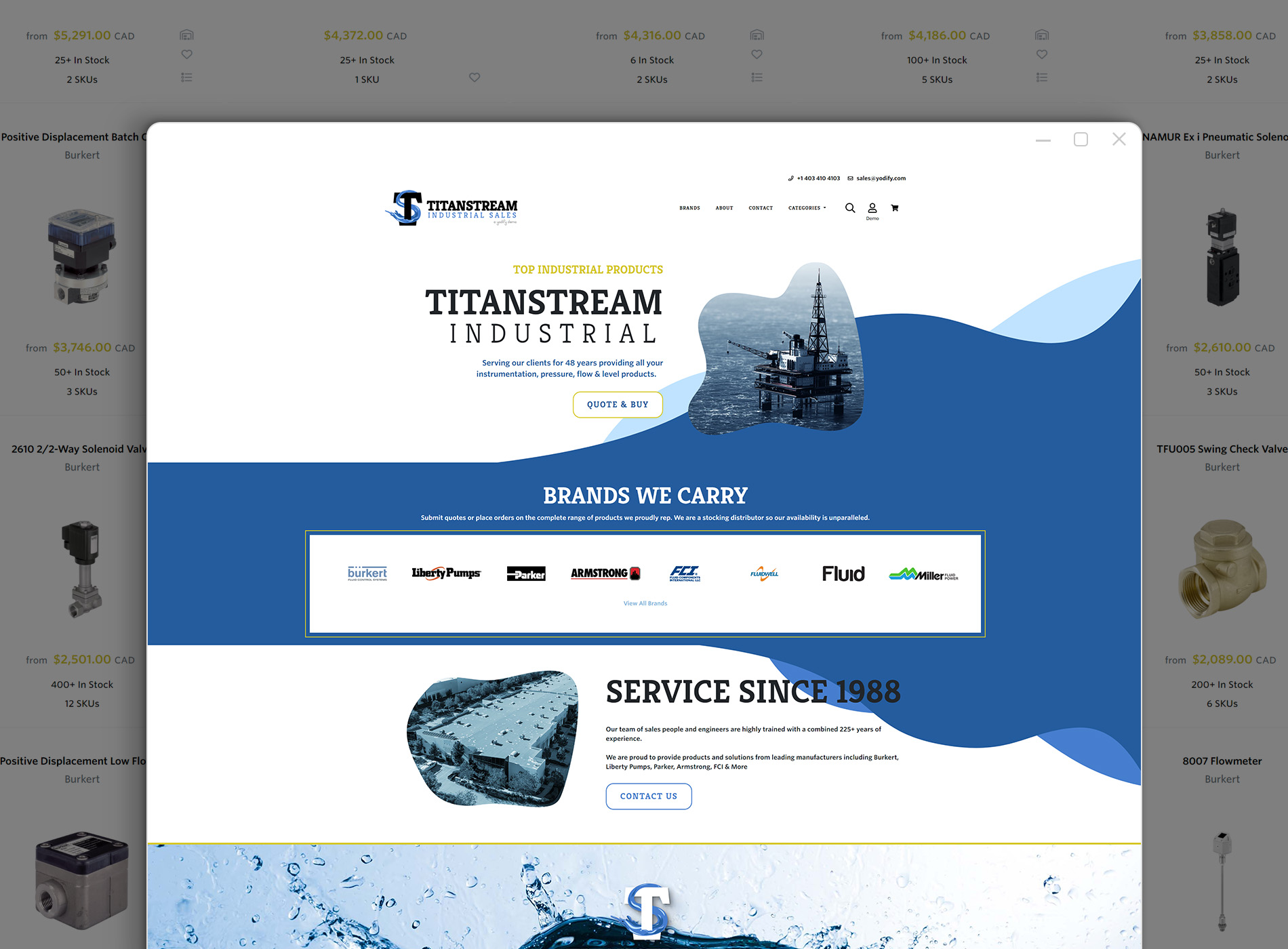Yodify Product Library
Add the Nelson™ Heat Trace Type HLT Self-Regulating Heater Cable to your store or catalog
Book Your Demo and See How
or create your store
Nelson™ Heat Trace Type HLT Self-Regulating Heater Cable
Brand: NelsonNelson™ Heat Trace HLT Series self-regulating heater cable is ideal for maintaining flow over a wide range of operating temperatures.
The product is used for freeze protection of periodically steam (200 psig) cleaned pipes and temperature maintenance for 121 °C (250 °F) or lower processes.
HLT Series heating cables are available in 120 and 240 voltages and are designed for use in ordinary (unclassified) and hazardous (classified) locations. Typical applications include hydrocarbon and chemical product piping.
Features- Type HLT self-regulating heater cable is a parallel circuit electric heater strip. A conductive fluoropolymer core material is extruded over the multi-stranded, nickel-plated, 16-gauge copper bus wires. A fluoropolymer jacket provides excellent dielectric strength, moisture resistance, protection from impact and abrasion damage, and a wide range of chemical resistance. A stranded tinned copper metal braid is supplied on all heaters. An optional fluoropolymer overjacket can be specified when the heater cable is to be installed in wet or corrosive environments. The base product is supplied with a tinned copper metal braid that may be used in both general applications and in dry, non-corrosive hazardous (classified) areas.
- Operating principle: The parallel bus wires apply voltage along the entire length of the heater cable. The conductive core provides a continuous parallel heating element permitting the cable to be cut to any length in the field with no dead or cold zones developing. The heater cable derives its self-regulating characteristic from the inherent properties of the conductive core material. As the core material temperature increases, the number of conductive paths in the core material decreases, automatically decreasing the heat output. As the temperature decreases, the number of conductive paths increases, causing the heat output to increase. This occurs at every point along the length of the cable, adjusting the power output to the varying conditions along the pipe. The self-regulating effect allows the cable to be overlapped without creating hot spots or burnout. As the cable self-regulates its heat output, it limits the maximum sheath temperature, while also providing useful power for process temperature maintenance.
- Voltage ratings: 240 Vac products are suitable for use on supply voltages of 208-277 Vac. See catalog pages for details.
Specifications
Brand
Accessories
- Connection Kits, Thermostats, Contactors, Junction Boxes, Tape, Warning Signs, Custom Control, & Monitoring & Power Panels are available. See Catalog Pages for Details
Approvals & Certifications
- UL Listed, CSA Certified, FM Approved: Hazardous (Classified) Locations
Bus Wire Size
- 16 AWG Copper Conductors
Canadian Standards Association
- -CB or -J Options: Class I, Div. 2, Groups B, C, D, Class II, Div. 2, Groups E, F, G, Class III, Class I, Zone 2, Group IIB + H₂. -J Option: Class I, Div. 1, Groups B, C, D, Class II, Div. 1, Groups E, F, G, Class I, Zone 1, Group IIB, Zon
Dimensions
- 5.1 mm x 10.5 mm (0.201" x 0.413")
Factory Mutual
- -CB or -J Options: Class I, Div. 2, Groups A, B, C, D, Class II, Div. 2, Groups F, G, Class III. -J Option: Class I, Zone 1 AEx E II, Group IIC. D1- Option: Class I, Div. 1, Groups B, C, D, Class I, Zone 1, Group IIB
Maintain Temperature
- +120° C (+250° F)
Maximum Continuous Exposure Temperature
- +120° C (+250° F) Continuous Power-On
Maximum Intermittent Exposure Temperature
- +215° C (420° F) 1000 Hours Cumulative Exposure
Minimum Bend Radius
- 25.0 mm (1.0") at -40° C (-40° F)
Minimum Installation Temperature
- -40° C (-40° F)
Temperature Classification (T Code)
- T3 +200° C
Underwriter's Laboratory
- -CB or -J Options: Class I, Div. 2, Groups A, B, C, D, Class II, Div. 2, Groups F, G, Class I, Zone 1, AEx E II. D1- Option: Class I, Div. 1, Groups B, C, D, Class II, Div. 1, Groups E, F, G, Class III


